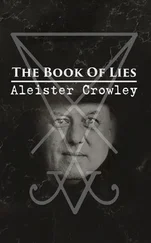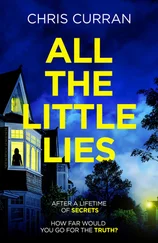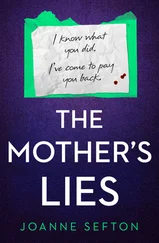We say:
"We are quite prepared to effect certain tasks for you in exchange for these things. We could water or weed your garden, for example, carry parcels…"
He shouts again:
"I don't have a garden! I don't need you! And in the first place, can't you talk normally?"
"We do talk normally."
"Is it normal, at your age, to say 'quite prepared to effect'?"
"We speak correctly."
"Yes, too correctly. I don't care at all for the way you talk! Nor for your way of looking at me! Get out!"
We ask:
"Do you have any chickens, sir?"
He dabs his white face with a white handkerchief. He asks, without shouting:
"Chickens? Why chickens?"
"Because if you don't have any, we have at our disposal a certain quantity of eggs and can supply you with them in exchange for these things, which are indispensable to us."
The bookseller looks at us and says nothing.
We say:
"The price of eggs increases day by day. On the other hand, the price of paper and pencils…"
He throws our paper, our pencils, and our notebook in the direction of the door and yells:
"Get out! I don't need your eggs! Take all that, and don't come back!"
We pick the things up carefully and say: "We shall be obliged, however, to come back when we have used up all the paper and pencils."
For our studies, we have Father's dictionary and the Bible we found here at Grandmother's, in the attic.
We have lessons in spelling, composition, reading, mental arithmetic, mathematics, and memorization.
We use the dictionary for spelling, to obtain explanations, but also to learn new words, synonyms and antonyms.
We use the Bible for reading aloud, dictation, and memorization. We are thus learning whole pages of the Bible by heart.
This is how a composition lesson proceeds:
We are sitting at the kitchen table with our sheets of graph paper, our pencils, and the notebook. We are alone.
One of us says:
"The title of your composition is: 'Arrival at Grandmother's.' "
The other says:
"The title of your composition is: 'Our Chores.' "
We start writing. We have two hours to deal with the subject and two sheets of paper at our disposal.
At the end of two hours we exchange our sheets of paper. Each of us corrects the other's spelling mistakes with the help of the dictionary and writes at the bottom of the page: "Good" or "Not good." If it's "Not good," we throw the composition in the fire and try to deal with the same subject in the next lesson. If it's "Good," we can copy the composition into the notebook.
To decide whether it's "Good" or "Not good," we have a very simple rule: the composition must be true. We must describe what is, what we see, what we hear, what we do.
For example, it is forbidden to write, "Grandmother is like a witch"; but we are allowed to write, "People call Grandmother the Witch."
It is forbidden to write, "The Little Town is beautiful," because the Little Town may be beautiful to us and ugly to someone else.
Similarly, if we write, "The orderly is nice," this isn't a truth, because the orderly may be capable of malicious acts that we know nothing about. So we would simply write, "The orderly has given us some blankets."
We would write, "We eat a lot of walnuts," and not "We love walnuts," because the word "love" is not a reliable word, it lacks precision and objectivity. "To love walnuts" and "to love Mother" don't mean the same thing. The first expression designates a pleasant taste in the mouth, the second a feeling.
Words that define feelings are very vague. It is better to avoid using them and stick to the description of objects, human beings, and oneself, that is to say, to the faithful description of facts.
Our Neighbor and Her Daughter
Our neighbor is not as old as Grandmother. She lives with her daughter in the last house of the Little Town. It is a completely dilapidated shack with several holes in the roof. Around it there is a garden, but it is not cultivated like Grandmother's garden. Nothing grows there but weeds.
The neighbor spends all day sitting on a stool in her garden looking straight in front of her at who knows what. In the evenings or when it rains, her daughter takes her by the arm and leads her indoors. Sometimes her daughter forgets her or isn't there, and then the mother spends the whole night outside, whatever the weather.
People say that our neighbor is mad, that she lost her mind when the man who made her pregnant abandoned her.
Grandmother says that the neighbor is simply lazy and prefers to stay poor rather than get down to work.
The neighbor's daughter is no taller than we are, but she is a bit older. During the day, she begs in the town, outside cafés and at street corners. At the market, she picks up vegetables and rotten fruit that people throw away and takes them home. She also steals anything she can. Several times we have had to chase her out of our garden when she was trying to take fruit and eggs.
Once, we catch her drinking milk by sucking the udder of one of our goats.
When she sees us, she gets up, wipes her mouth on the back of her hand, steps back, and says:
"Don't hurt me!"
She adds:
"I run very fast. You won't catch me."
We look at her. It's the first time we've seen her close up. She has a harelip, she's cross-eyed, she has snot in her nose and yellow dirt in the corners of her red eyes. Her legs and arms are covered with pimples.
She says:
"I'm called Harelip. I like milk."
She smiles. Her teeth are black.
"I like milk, but what I like best is sucking the udder. It's good. It's hard and soft at the same time."
We say nothing. She approaches us.
"I like to suck something else, too."
She stretches out her hand. We step back. She says:
"Don't you want to? Don't you want to play with me? I'd really like to. You're so handsome."
She lowers her head and says:
"I disgust you."
We say:
"No, you don't disgust us."
"I see. You're too young, too shy. But you don't have to be embarrassed with me. I'll teach you some very amusing games."
We say:
"We never play."
"Then what do you do all day long?"
"We work and study."
"I beg, steal, and play."
"You also look after your mother. You're a good girl."
She comes up to us and says:
"You think I'm a good girl? Really?"
"Yes. And if you need anything for your mother or for yourself you have only to ask us. We'll give you fruit, vegetables, fish, and milk."
She starts shouting:
"I don't want your fruit, your fish, or your milk! I can steal all that. What I want is for you to love me. Nobody loves me. Not even my mother. But I don't love anybody either. Not my mother and not you! I hate you!"
We put on dirty, torn clothes, we take off our shoes, we soil our faces and hands. We go out into the street. We stop, we wait.
When a foreign officer passes us, we raise our right hands in salute and extend our left hands. Usually the officer walks by without seeing us, without looking at us.
Finally an officer stops. He says something in a language we don't understand. He asks us questions. We don't answer. We stand motionless, one arm raised, the other held out. Then he fumbles in his pockets, places a coin and a bit of chocolate in our dirty hands, and goes off, shaking his head.
We go on waiting.
A woman passes by. We hold out our hands. She says:
"Poor kids. I have nothing to give you."
She strokes our hair.
We say:
"Thank you."
Another woman gives us two apples, another some biscuits.
A woman passes by. We hold out our hands. She stops and says:
Читать дальше
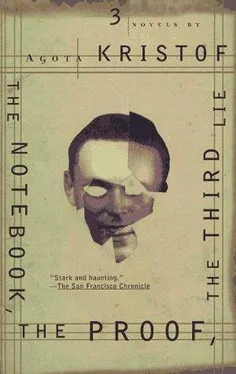




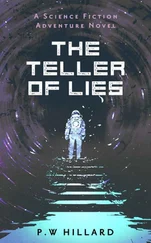
![Джеффри Дивер - Where the Evidence Lies [A Lincoln Rhyme Short Story]](/books/403782/dzheffri-diver-where-the-evidence-lies-a-lincoln-r-thumb.webp)
